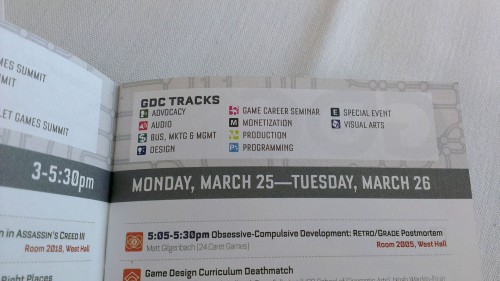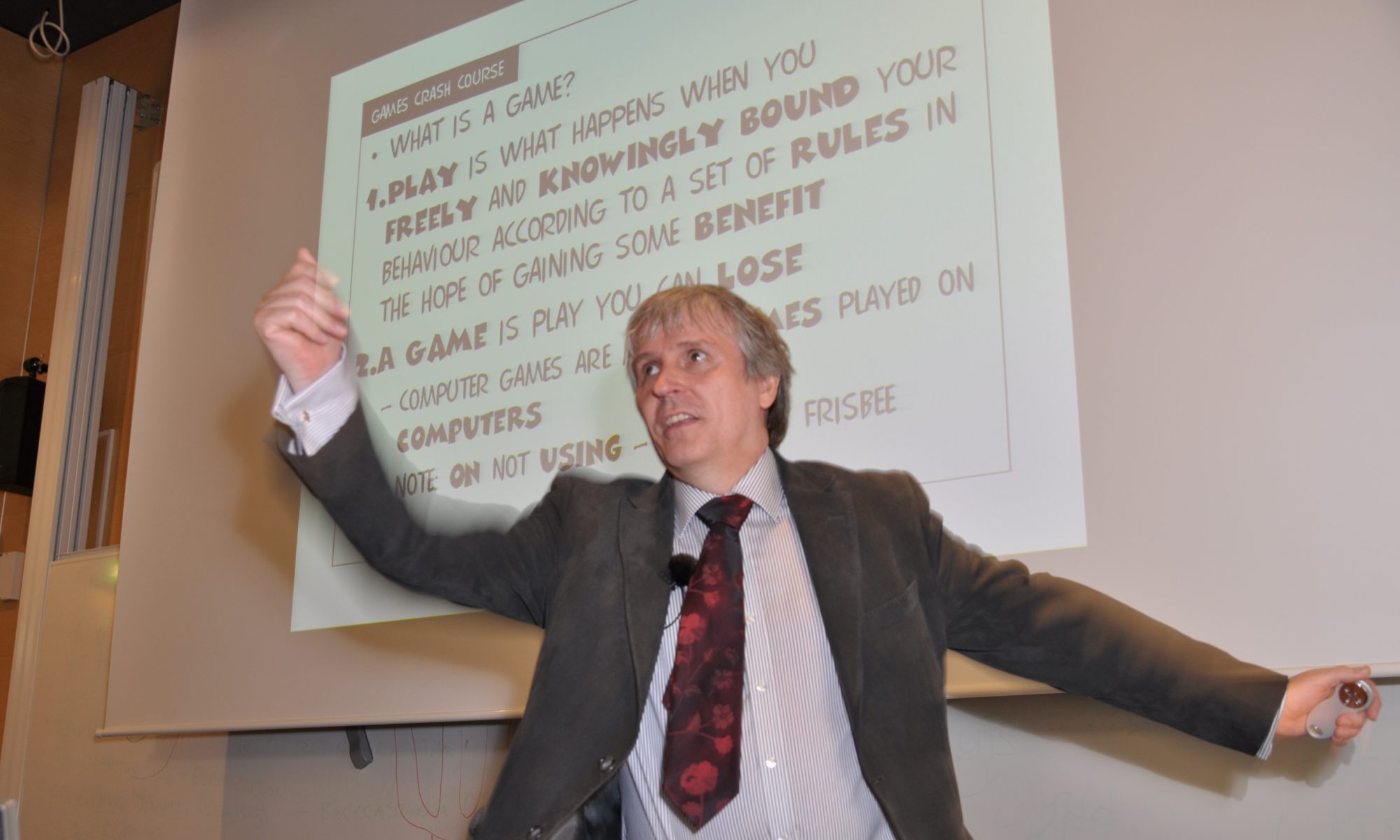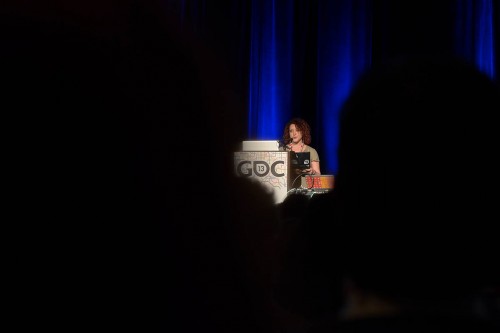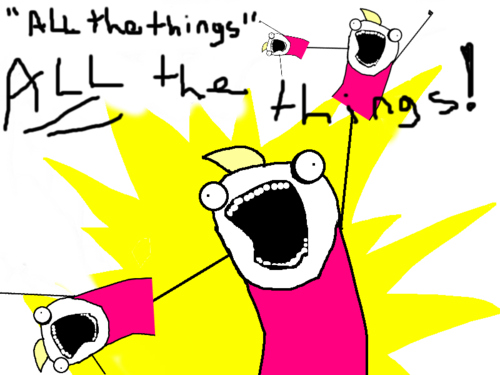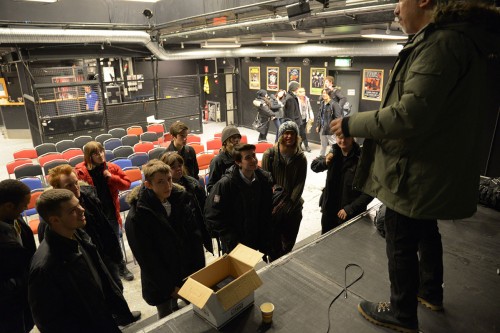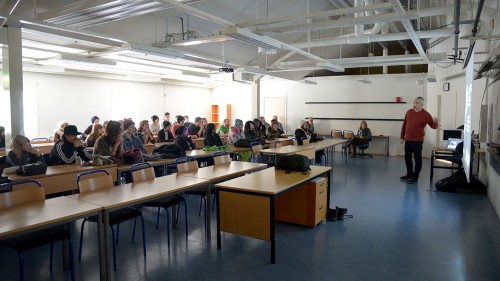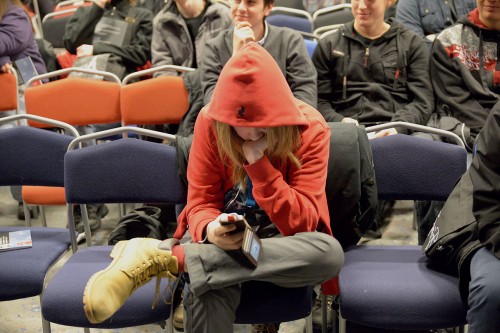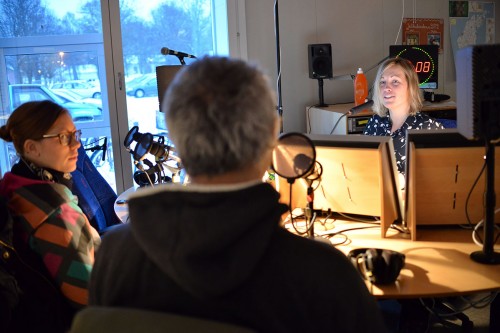Sundsvall was awesome, again.
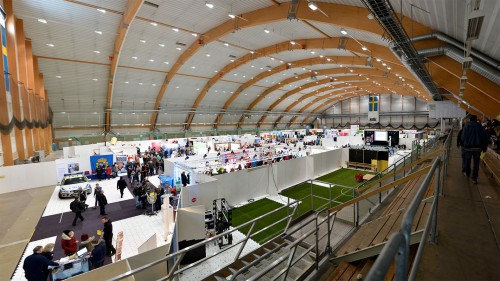
Sundsvall 24 – an organisation that works to connect young talent with entrepreneurs and new businesses – invited us back to their city, to speak at Utbildning & Rekrytering.
Thus we had the distinct pleasure of meeting all the third year high school students of Sundsvall and the neighboring cities, at a fair where higher educations, employers and talent seekers try to attract the fresh young minds before they get their graduation drunk on.
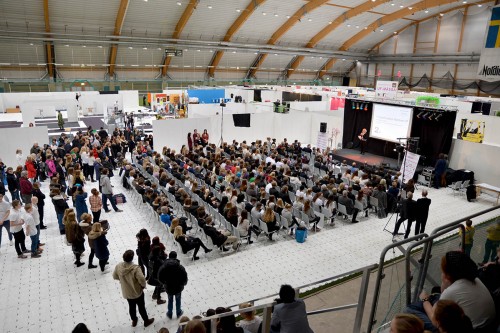
We spoke about what it takes to do well at a game education. And by proxy, what a good game education is. But really, our entire presentation can be summed up in single bullet point;
- Do not apply to a game education thinking you’ll get out of school. (we will beat you)
With a touch of;
- We don’t want you. We want your sister.
We were at an education fair and talked about why you shouldn’t apply to higher education, and provided some options, a couple of strategies to prepare yourself and some ways to test if you truly are ready.
Speaking to a room full of young, male, self-identifying gamers and bored readers, we can only hope we won’t be seeing any of them in our classrooms come autumn. 😛
The other part of the exibition was Ung Företagsamhet – a national version of the American Junior Achievement. Through the projects students get an opportunity to create a product, design a business plan, start a business, run it for 6 months and then dismantle it. We got to see the final products presented by the students themselves on the show floor. We saw import/export businesses, gambling, social services (providing company for old people), beauty, development, health and honest to god inventors.
One group (the only one that had salespeople walking the floor and thus approached us rather than the opposite) had made an all-natural ecological lip balm. They found a place to buy the empty lip balm sticks and invented their own recipes and five flavors (incl. ginger bread!). Most impressive thing? Apart from the excellent approach to exhibits and selling – they have a fully functional website – allowing me to place an order online and pick the product up at once on site.
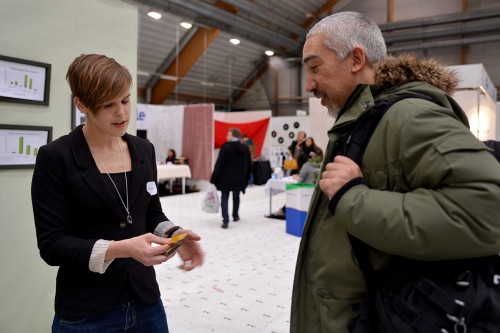
This girl has made a reflex to attach to your bus card – guaranteeing you always have visibility when you need it; when walking to, from or waiting for the bus. She had loads of statistics on the problem (lack of visibility in traffic, poor reflex discipline and it’s effects) and for her proposed solution. Her product is smart, cheap, flexible and re-attachable – kind of like screen protectors.
We suggested she might want to sell these to businesses as a branding product. Print it with logos, websites or QR codes. Shit – the buss company itself could provide these with their cards.
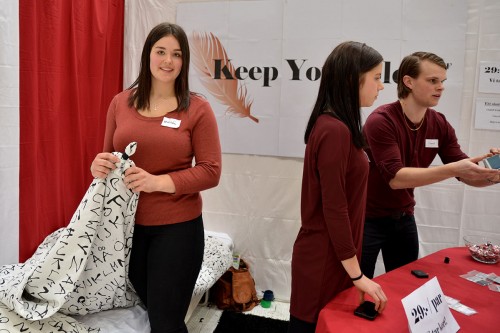
These people had invented a solution to blankets falling to the bottom of their sheets when sleeping. And they had a collaboration with a local bank to accept card payments and thus sold their invention on the floor. Re-branding velcro and making money off of it – impressive. 🙂

Another group made ecological wheat heat bags, entirely produced with local resources and from re-used materials. They had a very strong, well thought out, well executed and consistent profile; all about environment and community.
Every bag is delivered with a small folder detailing the origin of the (re-used) textiles, and info about the farm (just outside of town) where the wheat was grown. Everything is hand made – even the small paper bags you get to carry the stuff home in.
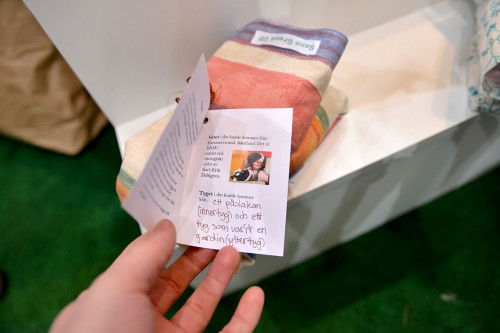
The market for heat bags is well tended to, and they were aware of this – though sales had been impressive they did not intend to continue with this product. But there is always a space for a solid product with unique selling points. Especially when the opportunity costs is as low as for these projects.
The creativity behind useful inventions is always impressive, but what we really appreciated was talking to the properly ambitious groups like the ones We’ve shown you. The ones that had set up web sites to reach their markets. That had payment processors and invoicing systems. That had a well defined message and communicated it clearly. The ones that had done market research and provided excellent data for their solution.
The Ung Företagsamhet-floor was such a highlight, we’re currently looking for ways GAME can be involved with this project for next year. Stay tuned. 🙂
